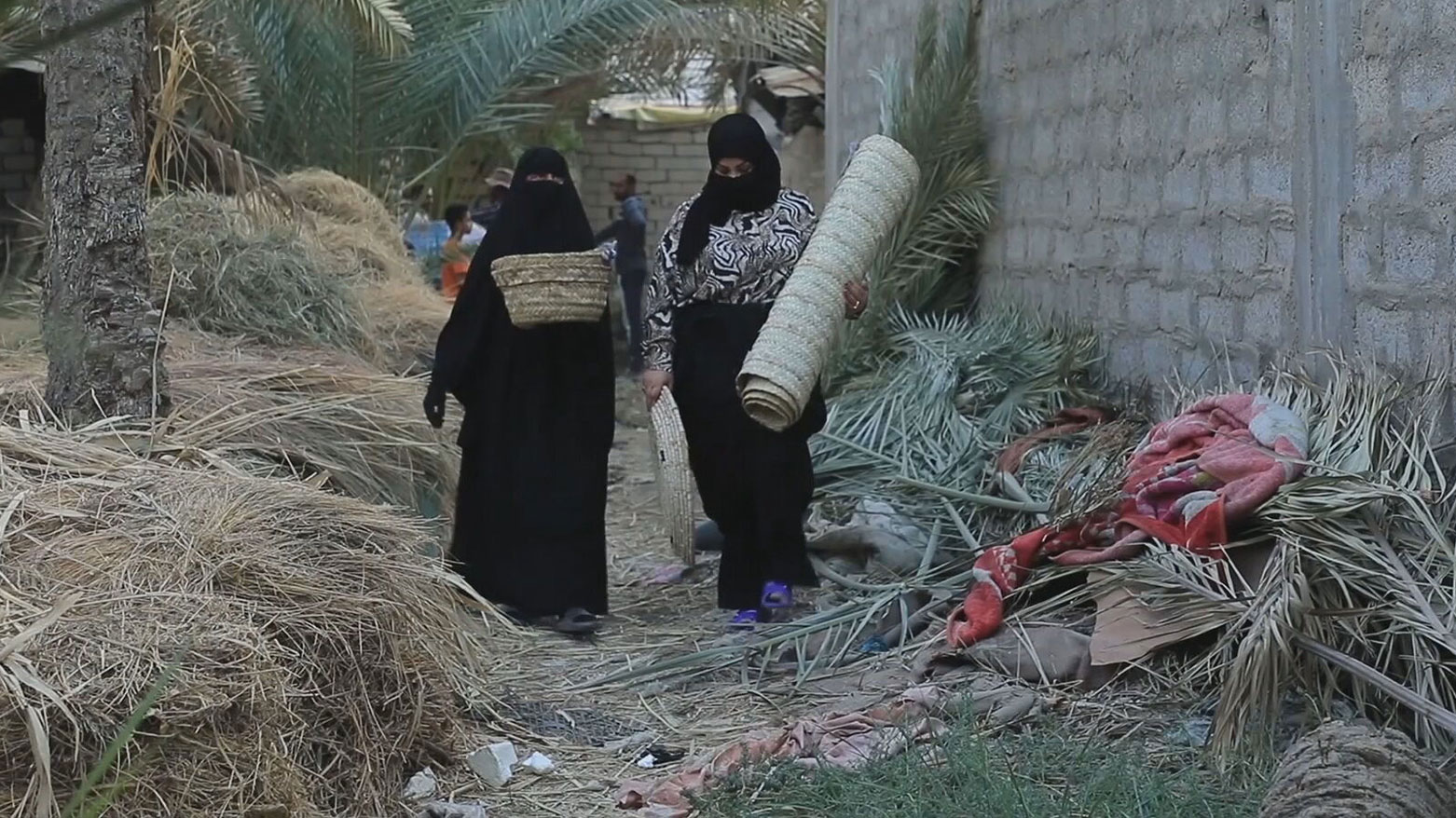Poverty Deepens in Oil-Rich Dhi Qar as Families Struggle to Survive
Despite Iraq’s oil wealth, poverty in Dhi Qar is rising. Craftswoman Umm Ali supports her daughters' education by selling handmade baskets. Experts blame mismanagement, corruption, and off-budget spending for worsening conditions and failing public services.

By Kamaran Aziz
ERBIL (Kurdistan 24) — Despite Iraq’s abundant oil and agricultural resources, the poverty rate in Dhi Qar province continues to rise, leaving many families in dire economic conditions. Among those affected is Umm Ali, a craftswoman who weaves baskets and mats to support her children’s education amid deepening financial hardship.
Umm Ali, a resident of the southern province, shared her daily struggle with Kurdistan24: “This is our life. I have nothing, and I have three daughters. They want to buy clothes and other things, and two of them are in college. They each need 150,000 dinars a month. I have nothing, so I have to borrow for them. Then, I collect date palm fronds, make them into mats and baskets, and sell them to pay back the debt.”
Experts say that poverty in Dhi Qar is driven by more than individual misfortune.
Despite the region’s oil wealth, basic and health services are in severe decline. Financial and development experts warn that poverty rates may reach unprecedented levels due to a combination of poor economic planning, financial mismanagement, and corruption.
Dr. Ali al-Shami, a financial expert, explained: “After 2003, all Iraqi governments have had extra-budgetary expenditures. The reasons are varied; some are due to emergencies, demonstrations, and public pressure on the government, while others are due to the withdrawal of large assets from the Ministry of Finance, the holding of summits and conferences, and other factors that cause the government to spend outside the budget. All of this contributes to a large deficit in providing public expenditures, such as salaries and other items.”
In addition to the public debt crisis, reports point to the misuse of national wealth on partisan activities, particularly in the run-up to elections. Economists warn that these expenditures have placed a significant burden on the state, paralyzing key institutions and reducing the government’s ability to support vulnerable communities.
As Iraq faces these entrenched structural challenges, residents like Umm Ali continue to bear the brunt of a struggling economy that has yet to translate national wealth into local prosperity.
Kurdistan24 correspondent Heider Hanoun contributed to this report.